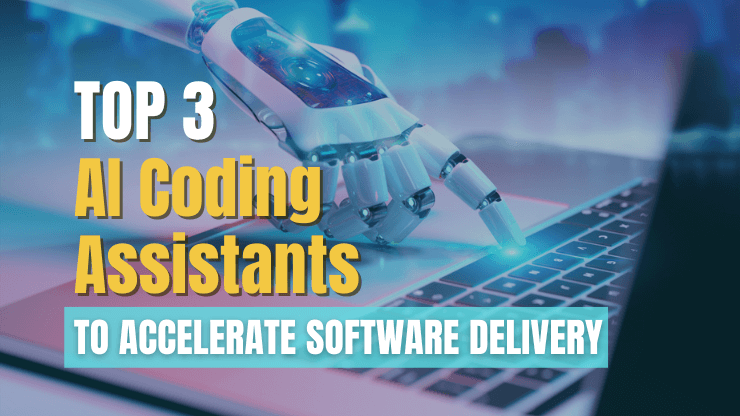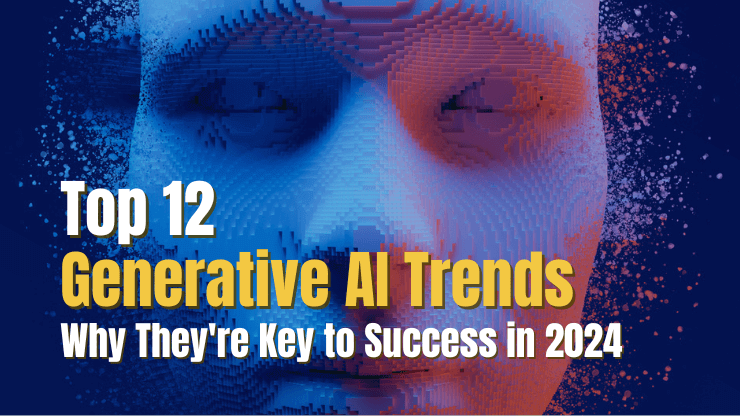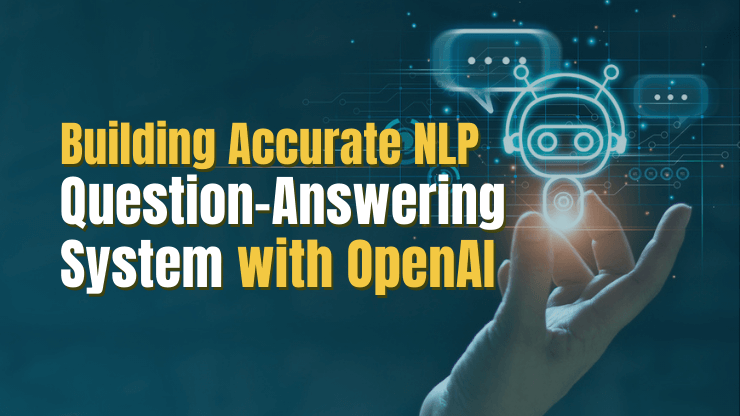AI-powered coding assistants are revolutionizing software development by providing intelligent code suggestions, automating mundane tasks, and improving developer productivity. If you’re looking for new ways to incorporate AI into your software workflows, integrating an AI coding assistant might be the right place to start.
In this article, we will explore three of the top AI coding assistants that are not only revolutionizing the way code is written but are also offering an edge in the increasingly competitive software space. By the end of this article, you’ll have the tools you need to take a step forward into integrating AI into your software workflows.
Why should teams consider using an AI coding assistant?
Integrating an AI coding assistant into your team's processes can transform the operational dynamics of development teams. Some of the top reasons teams should consider using an AI coding assistant include:
- Accelerated coding process: An AI powered code assistant can generate code in a variety of programming languages, provide intelligent code completions, and other in-line support that can drastically speed up the coding process.
- Talent optimization: By handling routine coding tasks, an AI powered coding assistant frees up developers to focus on more significant, higher-value work like strategy and sprint planning.
- Reduced development errors: An AI automated code review tool can not only make writing code faster but also help eliminate errors and bugs within new and existing code.
Top 3 AI Coding Assistants
As we navigate further into the era of intelligent automation, the prominence of AI coding assistants continues to surge. But with so many options available, it can be hard to know which tools you should consider. That's why in this next section we will highlight three of the best AI tools that your software team should consider using right away. Let’s jump right in with a very popular option - GitHub Copilot.
1. GitHub Copilot
AI coding partner that provides autocomplete suggestions while you code in C, C++, C#, Go, Java, JavaScript, PHP, Python, Ruby, Scala, and TypeScript.
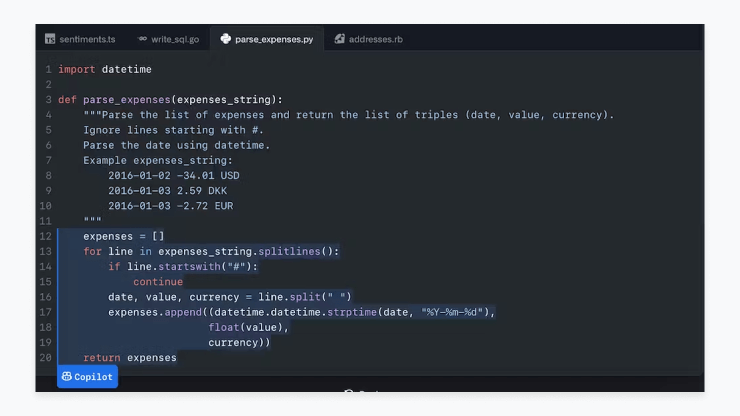
What you need to know:
- Very popular AI coding assistant to help software developers write code
- Integrated into various code editors like Visual Studio, Neovim, JetBrains IDEs, and Visual Studio Code - it’s even available as a Visual Studio Code Extension
- Can analyze your team’s existing code base and related files to offer suggestions directly in the text editor
- The artificial intelligence models cannot run locally, so if you need to write code offline or need to keep code local for compliance, you can’t use Copilot
- Provides the user with a variety of options as part of the code completion feature, keeping them in the “pilot” seat
2. Tabnine
AI-powered code completion tool that supports multiple programming languages, offers personalized code completions, and allows for hosting and training private AI models for collaborative autocompletion and code security.
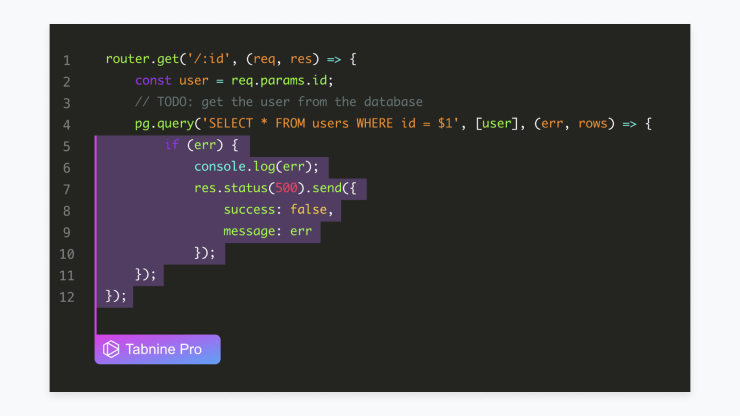
What you need to know:
- Requires less context than GitHub Copilot for code generation, and offers midline suggestions as you type
- Enterprise accounts offer a secure coding environment for development teams who need to keep their company's data safe and secure
3. OpenAI Codex
AI-powered programming assistant capable of understanding and generating code across multiple languages, designed to assist developers with code generation, static code analysis, and problem-solving.
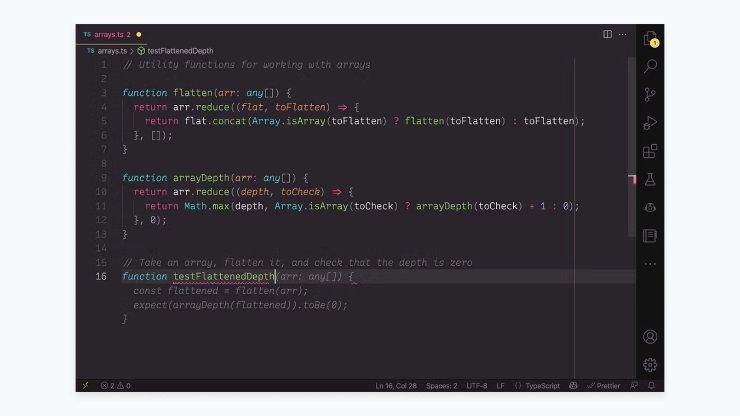
What you need to know:
- Must be accessed via API or via the OpenAI Playground
- It is most capable in Python, but it is also proficient in over a dozen languages including JavaScript, Go, Python, PHP, Ruby, Swift and TypeScript, and even Shell
- It has a memory of 14KB for Python code, compared to GPT-3 which has only 4KB—so it can take into account over 3x as much contextual information while performing any task
- As you might expect from OpenAI, Codex Can complete code-related natural language processing tasks
What are the top use cases for AI coding assistants?
AI coding assistants are versatile tools that can be utilized in a variety of use cases to enhance custom software development process:
- Coding acceleration: For developers, every minute counts. AI coding assistants supercharge the coding process by providing real-time code completion and code generation. This isn't just about saving keystrokes – it's about the assistant understanding the context and the intent of the code. Based on this understanding, a good AI tool will suggest relevant code snippets, helping developers navigate through familiar or new programming languages with ease.
- Code review: AI coding assistants use machine learning models trained on millions of code examples to analyze code and spot potential errors, bugs, or bad coding practices that might slip past even experienced developers. This results in more robust code and can drastically cut down on the time spent in debugging and fixing issues down the line.
- Bug fixing: Debugging is often one of the most time-consuming aspects of a developer's job. AI coding assistants excel in this area by not only identifying bugs but also suggesting optimal fixes. They accomplish this by analyzing the code patterns within a given programming language and using their learning from numerous code repositories to provide the most relevant solution. This can significantly decrease the time developers spend in the debugging process and increase productivity.
- Security enhancement: In today's digital landscape, security is of paramount importance. AI coding assistants enhance security by analyzing code for potential vulnerabilities. Using their extensive knowledge base, these assistants can identify patterns that might lead to data breaches or other security incidents. They can recommend security best practices and specific enhancements to write more secure code, helping teams build more secure and reliable software applications.
What best practices should teams follow when using a coding assistant?
Using an AI coding assistant can bring numerous benefits to a software development team. However, to maximize these benefits, it's essential to follow some best practices:
- Integrate into existing workflow: AI coding assistants should be integrated seamlessly into the existing development workflow. This could be through plugins or extensions for the IDEs your team is already using. Disrupting the workflow could lead to decreased productivity.
- Invest in training and onboarding: Make sure that developers understand how to use the AI coding assistant effectively. Provide training on the features and functions of the tool, and encourage team members to explore and use its full potential.
- Commit to continuous learning: AI coding assistants are continuously learning and improving. It's essential to keep up-to-date with the latest updates and enhancements. Encourage your team to regularly learn about and utilize these new features.
- Combine human and AI skills: While AI coding assistants can automate many tasks, they should be used to complement, not replace, human developers. Human review is really a non-negotiable step if you want to use AI code generators ethically.
- Encourage feedback: Foster a culture where developers are encouraged to provide feedback on the AI coding assistant. This could be bugs, errors, or suggestions for improvements. This feedback can be invaluable for refining the tool and making it more effective for your team.
- Measure the impact: Regularly measure the impact of the AI coding assistant on your team's productivity, code quality, and other key metrics. This will help you understand the value it's providing and identify areas where it could be better utilized.
- Prioritize security: When choosing and implementing an AI coding assistant, it is essential to prioritize security from the get-go. Ensure that the assistant you choose has stringent security measures in place and adheres to the highest industry standards.
Future trends of AI coding assistants
As we delve into the future trends of AI coding assistants, it becomes evident that these tools are not just a passing phenomenon but rather a mainstay that's poised to revolutionize the software development outsourcing. So with that in mind, let’s look at a few key trends you should be aware of as you begin to use your own AI coding tool:
- Learning from more complex codebases: Today's AI coding assistants have made significant strides in understanding and generating code from various programming languages. Looking forward, these tools are expected to become more adept at learning from larger and more complex codebases, thus providing even more precise code suggestions in a wider array of programming languages.
- Integration with more development tools: While many AI coding assistants already integrate well with popular code editors, future trends point towards even broader compatibility. This expansion can mean seamless integration with a wider range of development tools and platforms, thus enhancing the overall developer experience and software delivery process.
- Enhanced collaborative coding: Future AI coding assistants could also focus more on collaborative features, enhancing the ways teams work together on projects. This could include capabilities like real-time code generation and suggestions during collaborative sessions, effectively allowing teams to "pair program" with the artificial intelligence.
- More personalized assistance: As AI technology continues to evolve, we can expect more personalized experiences with AI coding assistants. This personalization could take the form of understanding a developer's unique coding style and offering suggestions accordingly or learning from the developer's past coding habits to anticipate future needs.
- Fostering responsible AI practices: As AI coding assistants become increasingly prevalent, there will also be an emphasis on fostering responsible AI practices. This focus will ensure that these tools are used ethically and that they adhere to best practices for AI fairness, transparency, and privacy.
In conclusion, the future of AI coding assistants is promising, with trends indicating that they will become even more integrated into our daily coding routines. As they evolve, these assistants have the potential not only to accelerate software delivery but also to fundamentally reshape the way we approach software development.
Conclusion
Harnessing the capabilities of AI coding assistants like GitHub Copilot, Tabnine, and OpenAI Codex can be a game-changer for software development teams of all sizes. By accelerating the coding process, optimizing talent, and enhancing code quality, these AI tools are essential in staying competitive, fostering innovation, and driving efficiency in today's competitive software market.
If you're looking for help developing a custom AI solution for your business, consider our software development Poland. Our team can work with you to put together a comprehensive AI strategy and guide you through the development process.
With our software design and development agency, you can leverage the power of existing AI models and tools to build a bespoke solution that meets the unique needs of your business.
Check our work and reach out for a free quote.

